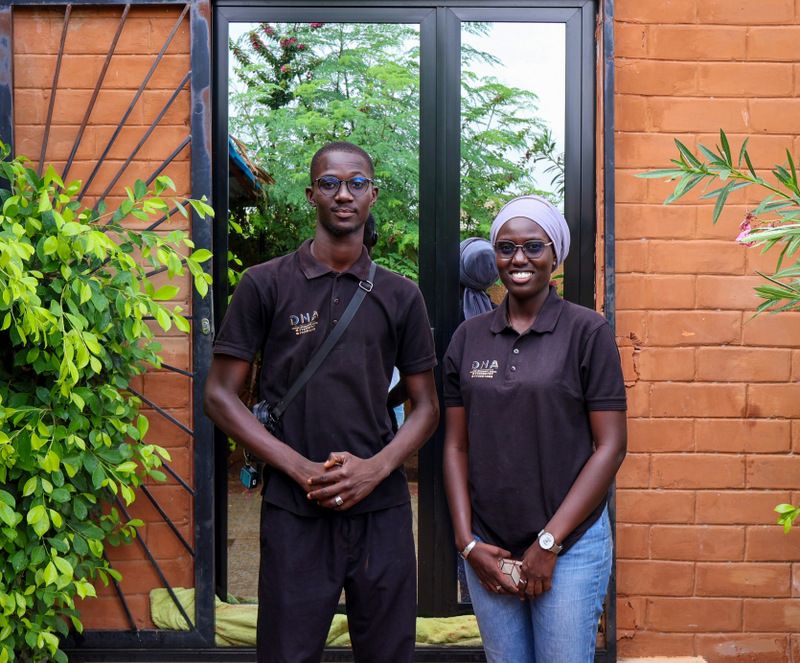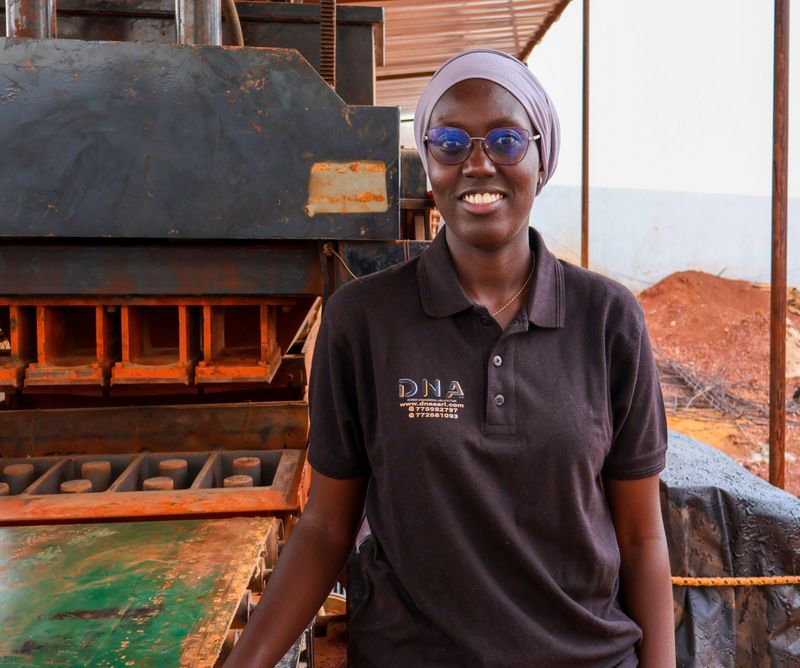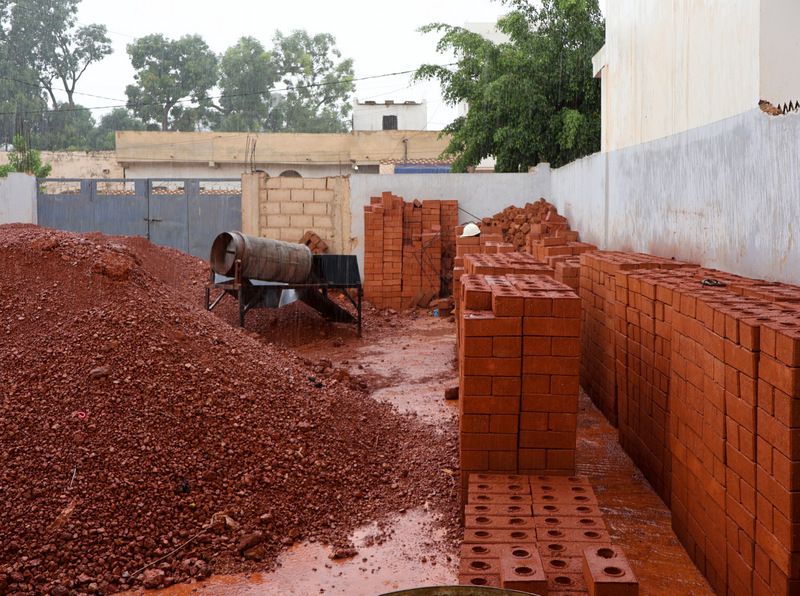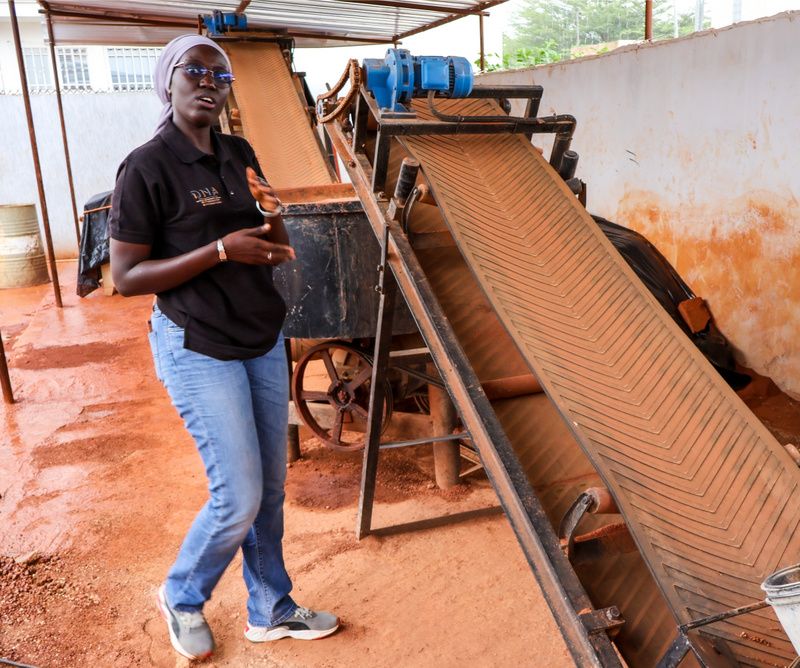 Childhood friends Mariama Djambony Badji and Papa Mafall Diop were both fascinated by buildings and how they are constructed, and they dreamed of starting a company together. “I initially wanted to study architecture, but then I studied civil engineering, like Mafall,” Badjj explained.
Childhood friends Mariama Djambony Badji and Papa Mafall Diop were both fascinated by buildings and how they are constructed, and they dreamed of starting a company together. “I initially wanted to study architecture, but then I studied civil engineering, like Mafall,” Badjj explained.
“Despite going to different universities, we always stayed in touch,” Badjj explained. Then Christelle Auxencia Lebrun, a friend from her civil engineering course, decided to join them to start their own company, Design Engineering Architecture (DNA), in 2019.
Initially, it was difficult for the three to manage studying and working in parallel, and it took until 2020 for the enterprise to take off. “When COVID started, we didn’t have to go to university anymore physically, so we had more flexibility. We started building our offices while supervising the workers on the site, we had our headphones in to take our online classes,” Mariama said with a laugh.
 “We wanted to do things differently, though—create a more sustainable concept,” she explained of their approach, which involves a technique using raw earth bricks and solar rather than concrete and regular power. It is an approach that has now become synonymous with their company.
“We wanted to do things differently, though—create a more sustainable concept,” she explained of their approach, which involves a technique using raw earth bricks and solar rather than concrete and regular power. It is an approach that has now become synonymous with their company.
“Many people are skeptical; they believe using raw earth is not durable and is antiquated. It reminds them of huts in small villages,” Badjj said.
 “Raw earth bricks keep a building cool naturally, so there is much less need for air conditioning in Senegal’s hot climate,” Badjj explained. In addition to decreasing a building’s environmental footprint, raw earth bricks are also healthier for a building’s inhabitants as they are produced without the chemical compounds used in other construction materials.
“Raw earth bricks keep a building cool naturally, so there is much less need for air conditioning in Senegal’s hot climate,” Badjj explained. In addition to decreasing a building’s environmental footprint, raw earth bricks are also healthier for a building’s inhabitants as they are produced without the chemical compounds used in other construction materials.
It wasn’t easy for the three young engineers, two of whom were women, to enter the traditionally-minded and male-dominated construction sector with a very non-traditional approach. “We had to make an extra effort compared to other companies,” Badjj admitted, adding that she still regularly asks co-founder Diop or another male colleague to attend on-site visits to supervise construction crews.
To date, DNA has been contracted to build ten buildings. Most are homes for private individuals, while some are buildings constructed for NGOs.
 Badjj and her team are very active on social media, where they try to demystify the use of raw earth bricks. One video posted by the team shows DNA employees grinding red earth into fine particles, mixing it with water, and compressing it into brick form with a machine.
Badjj and her team are very active on social media, where they try to demystify the use of raw earth bricks. One video posted by the team shows DNA employees grinding red earth into fine particles, mixing it with water, and compressing it into brick form with a machine.
DNA employs ten people full-time and another 35 temporarily on the construction sites. They try to include residents, whom they train to build with raw earth. The trained construction workers then join a database of qualified raw earth workers who are available for new projects in the area and who can maintain buildings as well as further educate their communities about raw earth construction.
“We are not stuck on raw earth. We are also researching other materials to find more sustainable and locally sourced alternatives to concrete,” she explained.
While other companies in Senegal are constructing raw earth buildings, DNA’s unique selling proposition is that it offers services along the entire value chain, from design and the production of bricks to construction, interior design, and even energy audits.
You can read the original article at www.bellanaija.com

